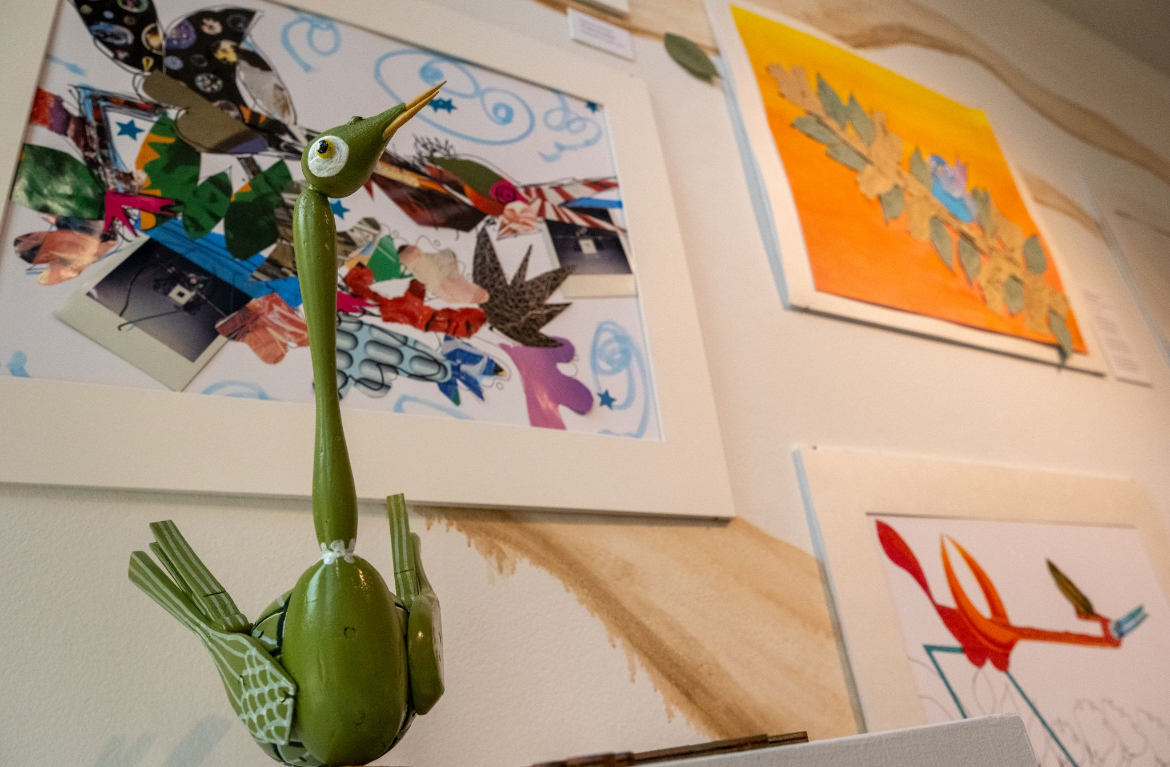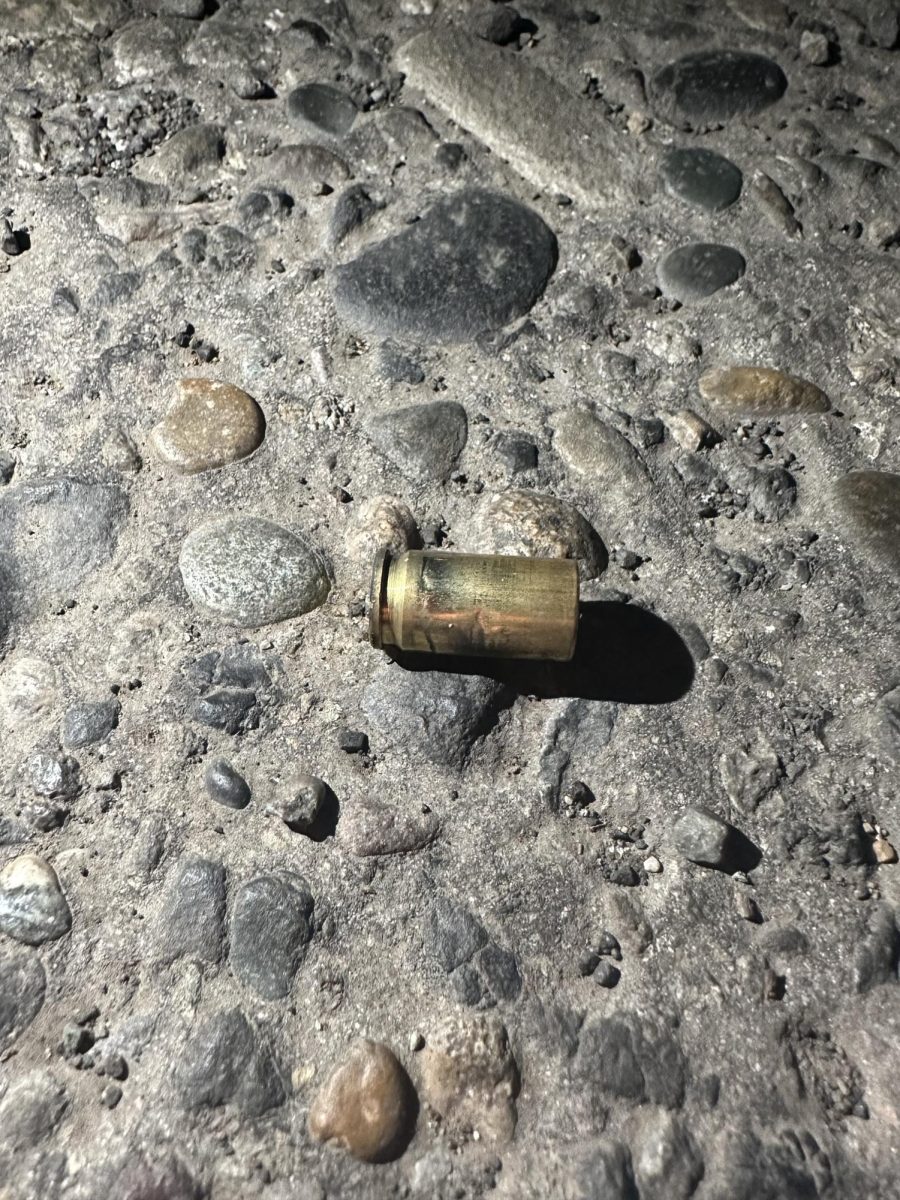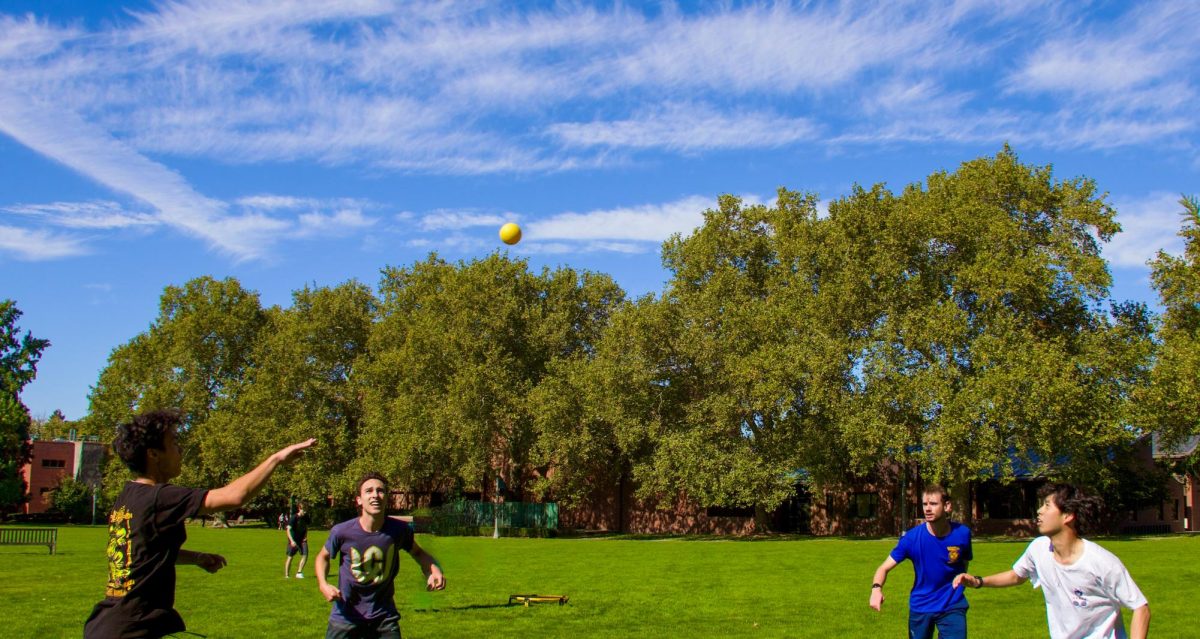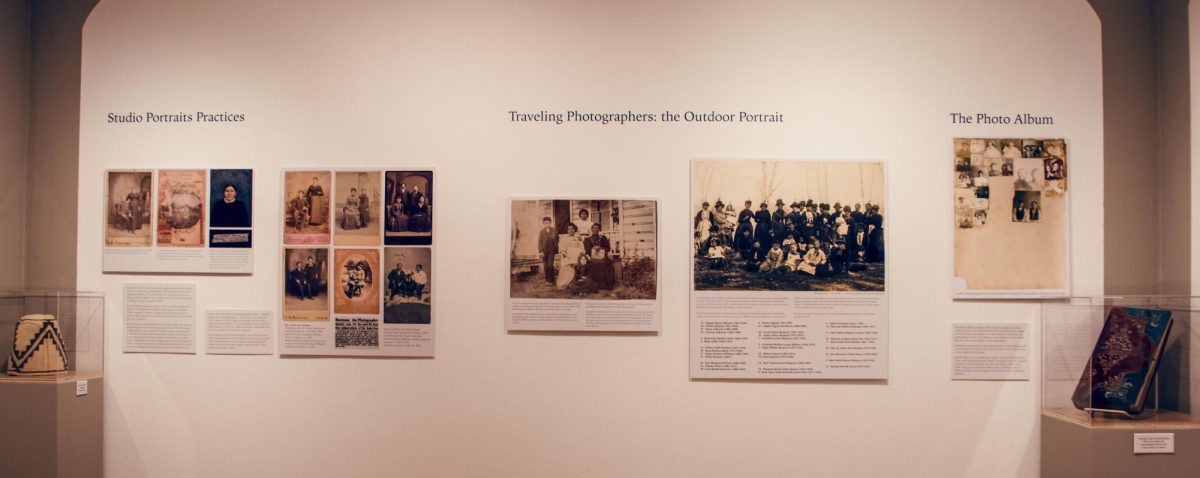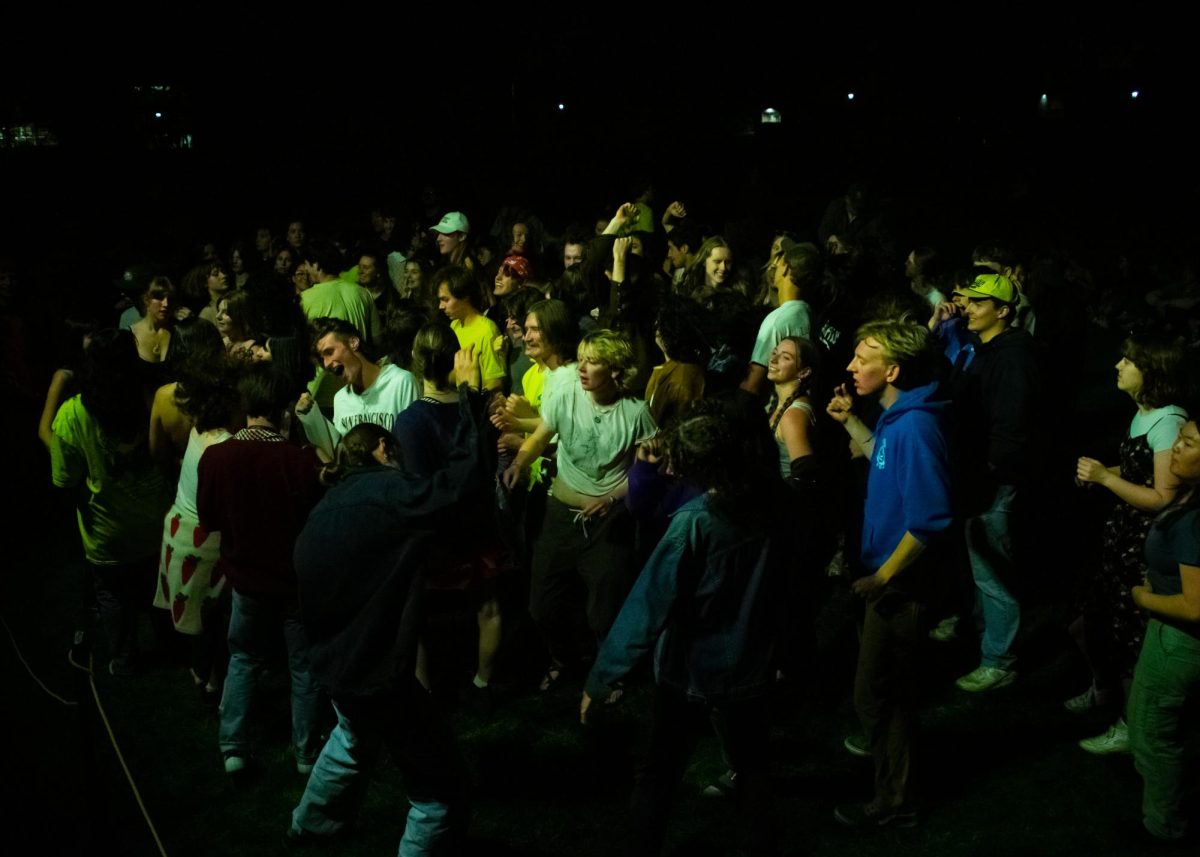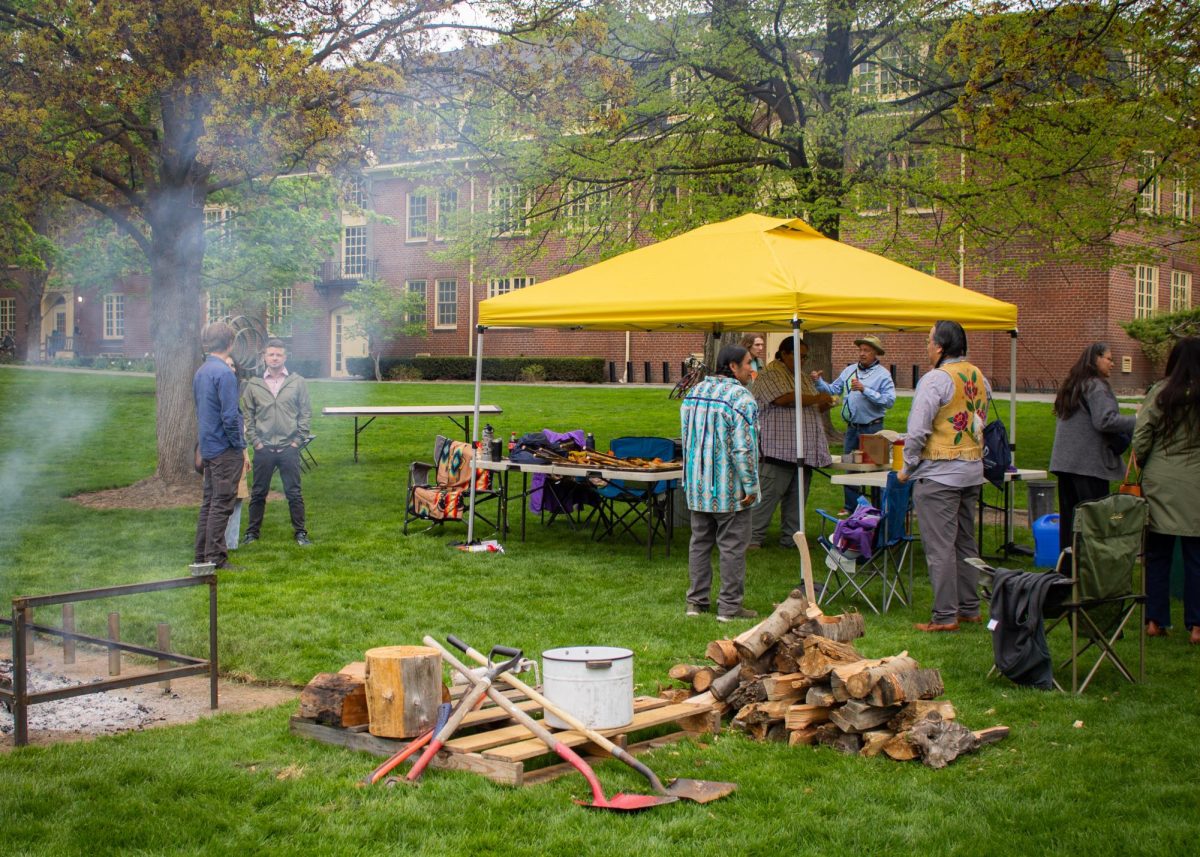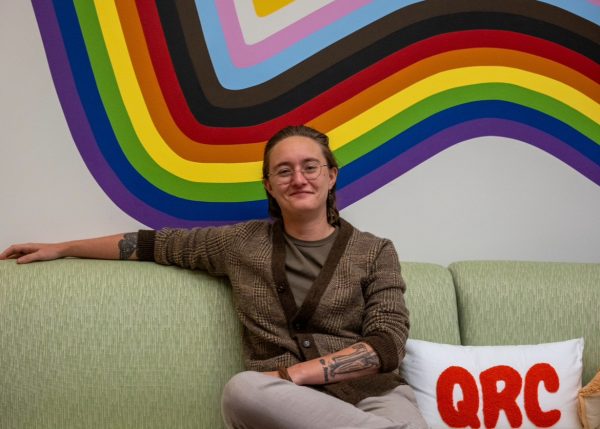
Shelby Hearn, the new director of Whitman’s LGBTQIA+ Student Services, has a vision for the future of LGBTQIA+ life at Whitman. Having recently left a role at the University of Utah where they felt stymied by anti-DEI legislation, Hearn sat down with The Wire to talk about their experiences and goals for their time at Whitman.
[The Wire] What drew you to Whitman?
I’ve been doing LGBTQIA+ student advocacy and support work in a variety of different ways, for about 10 years. Before I was at Whitman I was at the University of Utah and had stepped out of doing work at the LGBTQ center there for about a year, and found that I missed doing this work; I missed being in direct connection with students in the way that you get to be in this sort of work, seeing them through both celebration and hardship across their academic career. When I saw the job at Whitman, I was really interested in a different kind of campus. I’d been at this really large public school for five years. Also, the LGBTQ resource center that I worked at there was over 20 years old. I was really privileged to be part of a 20-plus year history there, and I learned a lot from it, but I was intrigued by how new this space, this office was, and the new challenges that come with building something.
[The Wire] I remember reading something about your work at the University of Utah where you were creating intersectional affinity spaces. Is that the kind of work you want to bring to Whitman? What are your plans for your role?
Right now my plans for this role are to very much just be listening to what the students need. At least a third, if not probably more, of Whitman students identify as queer and trans. That’s a lot of students, and it’s been that way prior to this office existing. I want to know what needs are unique to this campus and for these students to figure out what LGBTQIA student services’ identity really is on this campus. Intersectional affinity spaces are something that are needed all over the place. I would be eager to bring something like that to this campus.
[The Wire] You mentioned that in your role you get the opportunity to build out the Queer Resource Center. What is the ideal culture on campus that you would like to create? What would your ideal world be for the students you are supporting?
An ideal campus for my students is one where they just get to focus on being students and don’t have to feel like they need to survey the classroom or look up a professor ahead of time and be sure that it is safe or comfortable to be out. They don’t have to sit through classroom introductions and have a question in the back of their head of like, ‘Am I going to introduce myself with my pronouns or no?’ ‘Does this feel like the right vibe for me?’. In my ideal world it’s not a thought to be concerned about ever. They know that there are supportive places for them on campus beyond just the Queer Resource Center. They can go into any sort of resource space on campus and know that not only will they be accepted there, but they will be seen and celebrated. Something that’s important to me as an educator and someone who has been doing work with cis and heterosexual people who desire to be allies, or be in solidarity with queer and trans communities, is creating a campus where we have a lot of space and grace for each other in messing up.
[The Wire] How does your office want to go about discrimination, especially when it comes to preventing and repairing harm?
There’s harm prevention, [and] there’s harm reduction. There’s a lot of harm that we can prevent for sure, but there’s the reality that we hurt each other by accident all the time. [There’s] a piece of it that’s about preparing all those students who are coming to campus, preparing them around understanding that this is a campus where more of our students are LGBTQIA+ and this is what we expect as a campus in terms of respecting one another, impacting one another and having a community of care. There’s also an aspect of preparing students for, ‘what does it look like to address harm when it happens?’ Figuring out how to navigate those conflicts and have those conversations that are uncomfortable. I’m always happy to talk about those sorts of things. I also spend time training students to take a breath and be okay with screwing up, and address the moment when you will inevitably screw up in a way that is respectful of the other person.

